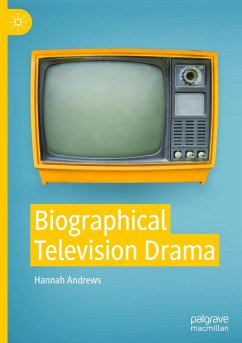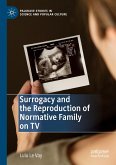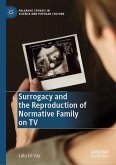"Biographical Television Drama breaks new ground as, to my knowledge, the first book-length exploration of the terms in which television engages in biographical storytelling. Backed by robust research in biography studies and British television history, Hannah Andrews deftly unravels the complexities behind the accessibility of biographical television drama. Her book tackles key questions head-on, notably rhetorics and style, narrative and performance and, innovatively, ethics, while also shedding light on the interconnections with other biographical screen forms through a rich corpus. This is an essential critical study that vindicates television drama's unique place in the histories and practices of screen biography."
-Belén Vidal, Senior Lecturer in Film Studies at King's College London and co-editor of The Biopic in Contemporary Film Culture
This book explores what happens when biography and television meet, in a novel fusionof the two fields of study. Andrews compares core concepts in biography and television studies such as intimacy, the presentation of the self and the uneasy relationship between fact and fiction. The book examines biographical drama's generic hybridity, accounting for the influence of the film biopic, docudrama, melodrama and period drama. It discusses biographical television drama's representation of real lives in terms of visual style, performance and self-reflexivity. Andrews also assesses how life stories are shaped for televisual narrative formats and analyses the adaptation process for the biographical drama. Finally, the book considers various kinds of reputation - of the broadcast institution, author, biographical subject - in relation to the ethics of televisual biography.
-Belén Vidal, Senior Lecturer in Film Studies at King's College London and co-editor of The Biopic in Contemporary Film Culture
This book explores what happens when biography and television meet, in a novel fusionof the two fields of study. Andrews compares core concepts in biography and television studies such as intimacy, the presentation of the self and the uneasy relationship between fact and fiction. The book examines biographical drama's generic hybridity, accounting for the influence of the film biopic, docudrama, melodrama and period drama. It discusses biographical television drama's representation of real lives in terms of visual style, performance and self-reflexivity. Andrews also assesses how life stories are shaped for televisual narrative formats and analyses the adaptation process for the biographical drama. Finally, the book considers various kinds of reputation - of the broadcast institution, author, biographical subject - in relation to the ethics of televisual biography.
"Andrews's highly developed conceptual framework should be commended for its regard of complexities that arise at the messy harmonies of both biography and television. The book is primarily intended for researchers working with biography and screen media, who will find it appealing. But owing to its broad analysis, sound theorization, and detailed empirical examinations, biography scholars of all mediums will find this work immensely valuable." (Blake Cameron, H-Net Reviews, h-net.org, May, 2024)
"Biographical Television Drama, Hannah Andrews offers an insightful, discursive account of the intersections between biography and television. ... this book Andrews provides television and biography scholars alike with a valuable and versatile framework to understand where, and how, the biographical and the televisual productively intersect." (Robert Watts, Critical Studies in Television, Vol. 17 (4), 2022)
"Hannah Andrews's book is an exceptionally well-constructedand discursive account of the various storytelling modes through which television drama has represented real people's lives on screen over the past 60 years. ... With this highly thought-provoking book, Hannah Andrews reinforces her position as one of Britain's most eminent television historians." (Tom May, Journal of British Cinema and Television, Vol. 19 (2), April, 2022)
"Biographical Television Drama, Hannah Andrews offers an insightful, discursive account of the intersections between biography and television. ... this book Andrews provides television and biography scholars alike with a valuable and versatile framework to understand where, and how, the biographical and the televisual productively intersect." (Robert Watts, Critical Studies in Television, Vol. 17 (4), 2022)
"Hannah Andrews's book is an exceptionally well-constructedand discursive account of the various storytelling modes through which television drama has represented real people's lives on screen over the past 60 years. ... With this highly thought-provoking book, Hannah Andrews reinforces her position as one of Britain's most eminent television historians." (Tom May, Journal of British Cinema and Television, Vol. 19 (2), April, 2022)








